|
03 de dezembro de 2020, 17h - 04 de dezembro de 2020, 22h Ver datas e horários Videoconferência via Sympla Streaming Website: https://www.sympla.com.br/webinar-de-caprinocultura-de-iga--goat-webinar-of-iga__972422 Programa/Programa Fechas/Data: Diciembre (Dezembro) 3 y 4 de 2020 Day 1 – December 3, 2020 17:00 Hours (GMT-3) – Ver mapa abajo para horas en diferentes paises Bienvenida y presentación panelistas: Clara Viviana Rúa -DR Suramérica Table One/Mesa 1
Table Two /Mesa 2 Contexto de la producción en cada país (Population, states with the highest production, associations, strengths, opportunities) 15 minutes of presentation of each
Day 2, December 4, 2020 Bienvenida y presentación panelistas: Livio – CR Brazil Table Three /Mesa 3 Context of small ruminant production by country (Population, states with the highest production, associations, strengths, opportunities) 15 minutes of presentation of each
Sesión preguntas /conversatorio/conclusión: Davinia Sánchez (20 minutes) Table Four /Mesa 4 Retos de la producción caprina en Sur América Challenges of South America goat production – Open discussion Moderation: Jean Marie Luginbuhl - IGA Secretary & Clara Viviana Rúa -DR South America Mapa de fusos horarios de Sudamerica
0 Comments
We want to welcome our newest IGA institutional member, the Breeds of Origin Conservancy.
Breeds of Origin Conservancy is a voluntary organization established in 2016 in Malta. They believe that conservation of the endemic flora and fauna, indigenous breeds; native species and subspecies; and cultivated varieties of trees and plants is vital to preserving the Maltese biodiversity for economic, social, educational, and cultural purposes. Today, these indigenous breeds, endemic species and subspecies, and cultivated varieties of trees and plants are increasingly threatened through commercial agriculture and consumption habits. They are convinced that since the protection and conservation of these breeds, species, subspecies, and varieties are of vital importance to Malta and a part of their national heritage, it is their obligation to ensure their survival. To learn more about Breeds of Origin Conservancy visit their Facebook page: www.facebook.com/BreedsofOrigin Special thanks to Marisia Geraci (IGA CR - South Africa) and Rauri Alcock (Director of Mdukatshani)
In 2017, there were no goat abattoirs in all of South Africa, Namibia, Botswana, Lesotho or Zimbabwe. So when the South African Agribusiness Development Agency was told to build one in KwaZulu Natal Province, they asked for help from Mdukatshani, a local NGO that is implementing a Goat Agribusiness Project. Director Rauri Alcock found the closest one in Tete, Mozambique. Here is his report of the visit. Unfortunately, in 2020, this goat abattoir is not yet built.  IGA Country Representative for Venezuela Alejandro Salvador lives in Maracay, Venezuela. He received his Master’s Degree in Animal Production in 2000 from the Faculty of Veterinary Sciences of the Central University of Venezuela. In 2013, he received a Doctorate in Agricultural Sciences from the Faculty of Agronomy of the Central University of Venezuela. He has participated as an exhibitor in more than 80 conferences, congresses, and courses. Alejandro is the author and co-author of 22 articles in peer-reviewed and indexed journals and three book chapters. He has also participated in numerous publications and TV shows of an informative nature. Currently, he serves as Professor of Animal Production, teaching Ruminant Production and Sheep and Goats Production at the Faculty of Veterinary Sciences, where he has worked for more than 25 years. He also works as a consultant advising different farms in Venezuela. Alejandro participates as a Member of the Technical Board of ASOCABRA (Association of Dairy Goat Breeders of Venezuela), and manager and founding member of CAVIDOC (Venezuelan Chamber of the Goat and Sheep Industry). Alejandro participated in the IGA International Conference on Goats in 2008 in Queretaro, Mexico, and in 2012 during the conference in Las Palmas de Gran Canaria. Want to learn more about our other Country Representatives? Click here.  Representante de IGA en Venezuela Alejandro Salvador vive en Maracay, Venezuela, recibió su Maestría en Producción Animal mención Sistemas de Producción Animal en el año 2000 en la Facultad de Ciencias Veterinarias de la Universidad Central de Venezuela, y el Doctorado en Ciencias Agrícolas en el año 2013 en la Facultad de Agronomía de la Universidad Central de Venezuela. Ha participado como expositor en más de 80 conferencias en Congresos, Cursos y Jornadas. Autor y Coautor de 22 artículos en revistas arbitradas e indexadas, además de tres capítulos de libros. También ha participado en numerosas publicaciones y programas de TV de índole divulgativo. Actualmente, se desempeña como Profesor Titular de la Catedra de Producción Animal, donde imparte las asignaturas Producción de Rumiantes y Producción de Ovinos y Caprinos de la Facultad de Ciencias Veterinarias por más de 25 años. También se desempeña en el ejercicio privado de la profesión asesorando diferentes apriscos en Venezuela. Participa como Miembro de la Mesa Técnica de ASOCABRA (Asociación de Criadores de Cabras Lecheras de Venezuela), y directivo y miembro fundador de CAVIDOC (Cámara Venezolana de la Industria Ovino Caprina en Venezuela). Ha participado en IGA desde 2008 en el Congreso en Queretaro, Mexico, y posteriormente en el Congreso de Gran Canarias, España en 2012. ¿Quiere obtener más información sobre nuestros otros representantes de países? Haga clic aquí. 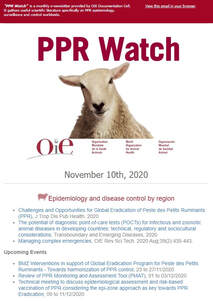 Epidemiology and disease control by region
Upcoming Events
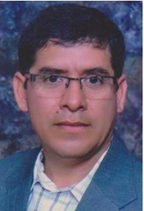 IGA Country Representative for Ecuador Manuel received his Doctorate in Veterinary Medicine and Animal Science from the National University of Loja, Ecuador. He also obtained a Doctorate in Veterinary Sciences - Animal Genetics at the Institute of Animal Science, Cuba. Currently, Manuel is a professor of Goat Production (Caprinocultura) and Animal Genetics at the State University of Bolívar, Ecuador. His focus is on goat milk production and animal behavior. Manuel is an academic advisor for Master’s and undergraduate theses focused on studying environmental and genetic factors that affect a goat’s lactation curve. Want to learn more about our other Country Representatives? Click here. 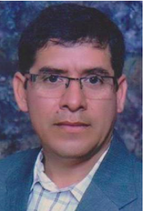 Representante de IGA en Ecuador Manuel se graduó de Doctor en Medicina Veterinaria y Zootecnia en la Universidad Nacional de Loja, Ecuador y, obtuvo su Doctorado en Ciencias Veterinarias, mención Genética Animal en el Instituto de Ciencia Animal, Cuba. Es profesor de Caprinocultura y Genética Animal en la Universidad Estatal de Bolívar, Ecuador. Sus estudios se centran en la producción de leche de cabra y comportamiento animal. Ha sido asesor académico de tesis de Maestría y pregrado centradas al estudio de la curva de lactación, factores ambientales y genéticos que la afectan en caprinos. ¿Quiere obtener más información sobre nuestros otros representantes de países? Haga clic aquí. 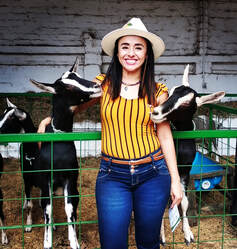 IGA Country Representative for Colombia Monica graduated in Animal Science and Veterinary Medicine from the University of Tolima in Tolima – Colombia, in 2014. In 2016, she obtained a Master's Degree in Animal Production from the Autonomous University of Yucatan in Yucatan – Mexico, and in 2019 she received a degree as a Specialist in Pedagogy for University teaching granted by the University La Gran Colombia in Bogotá – Colombia. She has been studying goat production since 2014, with an emphasis on food and nutrition systems. She has worked as a University Teacher on ruminant nutrition. Presently, she is an expert consultant for the animal production company Grokaizen, conducting virtual conferences, courses, and goat production support. In July 2019, she started a project with goats called Hircus, Passionate about Goats. She wants to promote goat production and consumption of goat products using social media networks such as Instagram, Facebook, and YouTube, to support and connect producers and consumers in Colombia and different Spanish speaking countries. Want to learn more about our other Country Representatives? Click here. 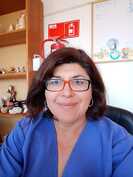 Claudia works at the Las Cardas Agricultural Experiment Station, University of Chile. This Station, located in Coquimbo, was created in 1979. She is an Administrator of the Experimental Station (since 2000), but that does not impede her from applying and participating in research and other projects. The Las Cardas Agricultural Experiment Station comprises 5,400 hectares dedicated to three areas: fruit trees resistant to water deficit, natural resources, and goat production. The latter is her sole responsibility in terms of production management, cheese making, and product sales. Claudia participates in the other areas in a supportive capacity. |
IGA Blog
The International Goat Association promotes goat research and development for the benefit of humankind, to alleviate poverty, to promote prosperity and to improve the quality of life. Archives
May 2024
Categories
All
|
|
International Goat Association
2516 Millbrook Rd., Little Rock, AR72227 USA email: [email protected] -454-1641 |
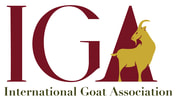
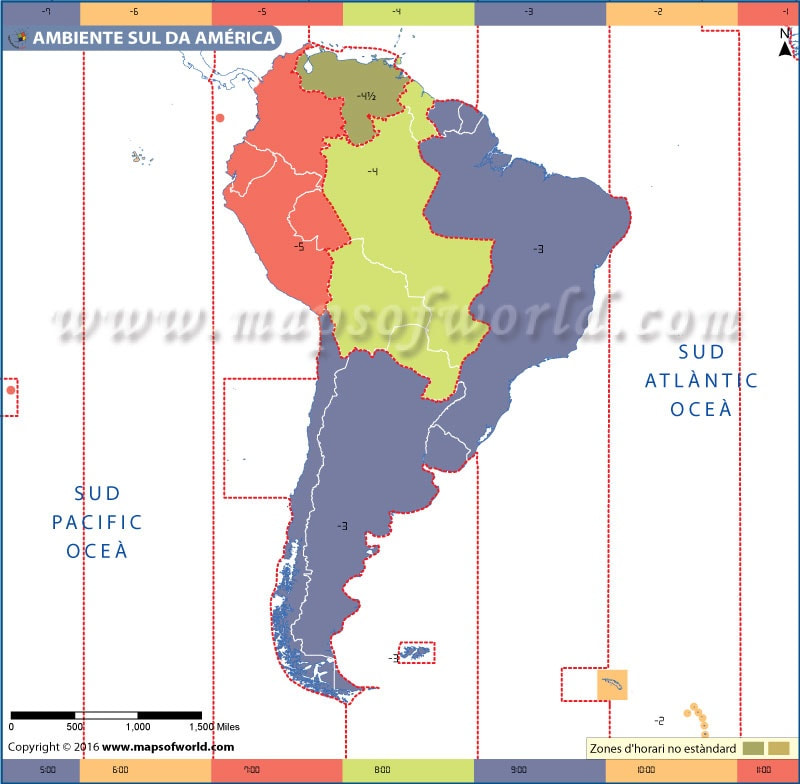
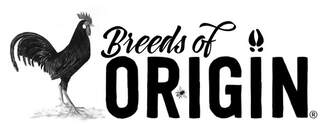
 RSS Feed
RSS Feed